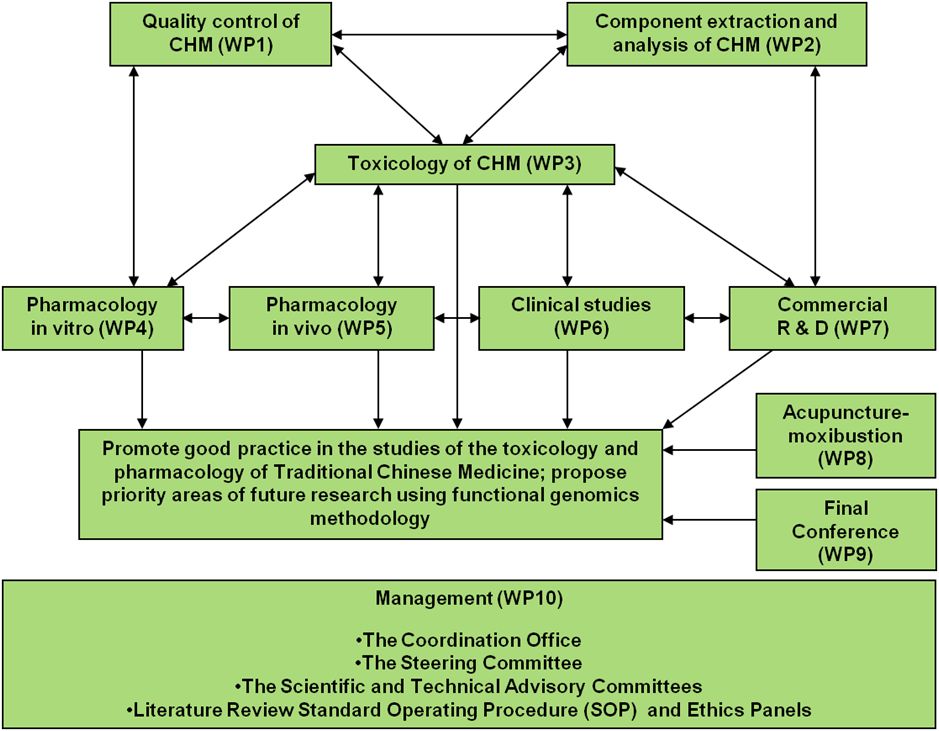In 10 work packages, the consortium takes actions to review the current status, identify problems and solutions in the quality control, extraction and analysis of CHM. While these fundamental issues are addressed, discussion fora emphasising the use of functional genomics methodology in research of the safety, efficacy and mechanisms of CHM and acupuncture will be the core of this coordination project. The project includes the application of techniques in cell-based models, animal models and in clinical investigations. The consortium’s work packages are as follows:
- WP1 – Quality Control of Chinese Herbal Medicines (led by Royal Botanic Gardens (Kew), UK)
- WP2 – Extraction and Component Analysis of Chinese Herbal Medicines (led by the Heinrich-Heine-University of Düsseldorf (HHU), Germany)
- WP3 – Functional Genomics in Toxicology Study of Chinese Herbal Medicines (led by Université Libre de Bruxelles (ULB), Belgium and Institute of Medicinal Plant Development (IMPLAD), China)
- WP4 – Functional Genomics of Chinese Herb Medicine Research in Vitro (led by King’s College London (KCL), UK)
- WP5 – Functional Genomics of Chinese Herbal Medicine Research in Vivo (led by University of Alcala (UA), Spain)
- WP6 – Functional Genomics in Clinical Studies of Chinese Herbal Medicines (led by London South Bank University (LSBU), UK)
- WP7 – Functional Genomics in R & D of Chinese Herbal Medicines (led by University of Cambridge (UCAM), UK)
- WP8 – Functional Genomics in Studies of Acupuncture-Moxibustion (led by China Capital Medical University (CCMU), China and LSBU, UK)
- WP9 – Final Conference (led by Leiden University (LU), the Netherlands)
- WP10 – Management: Sustainable Coordination and Development of TCM Research in the EU (led by King’s College London (KCL), UK)
All work packages comprise both EU and Non-EU scientists (especially Chinese partners). This will significantly facilitate exchange of information, expertise, and new collaborations between EU experts and partners from Non-EU countries including mainland China and Hong Kong, and promote collaborations among all countries involved.

GP-TCM work package interaction
![]()
